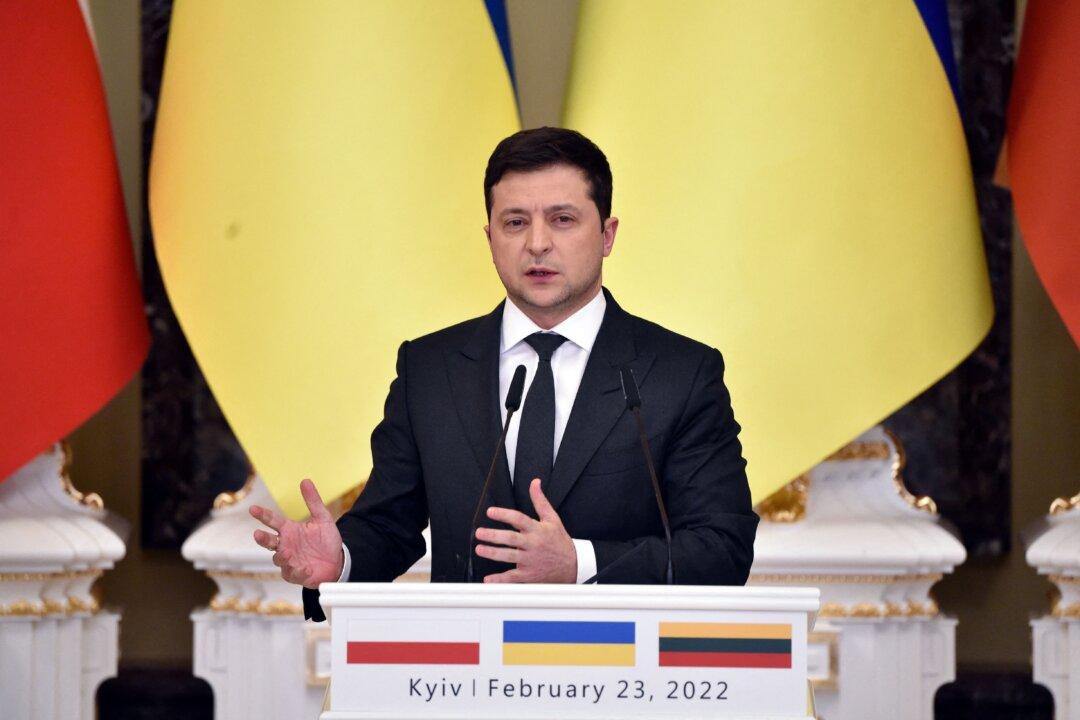Ukrainian President Volodymyr Zelensky said on Saturday that he’s ready to hold high-level peace talks with Russia, flagging Jerusalem as a possible location and expressing hope that Israeli Prime Minister Naftali Bennett could help broker a deal.
Zelensky told foreign reporters at a briefing in Kyiv that holding lower-level technical negotiations in Belarus, Russia, or Ukraine would be “unconstructive,” calling instead for a “meeting of leaders,” potentially in Jerusalem.





